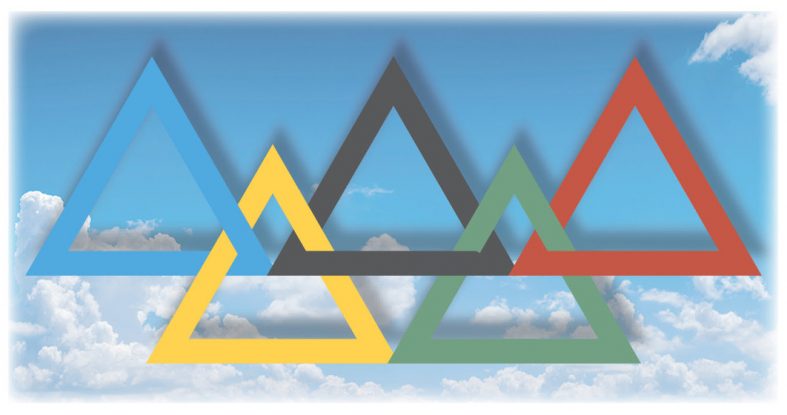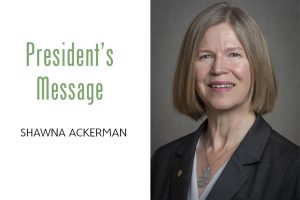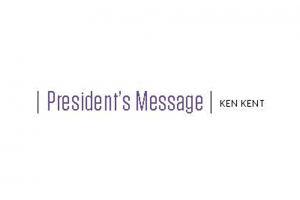By Tom Campbell
I’ve always been a fan of sports—pretty much all sports. While my current participation is limited mainly to cycling and an occasional round of golf, I will watch or read about just about anything sports-related.
This time of year, I mostly follow baseball, golf and, of course, hockey playoffs. But over the next month I will also be following the Tour de France (cycling) and the Olympics. It’s not just finding out who wins, it’s how they win. When watching the Tour, I really enjoy seeing how the cycling teams strategically approach the race; it’s more than just riding fast—it’s working as a team and picking your spots over the 21 stages. I also like to follow the underdogs—unestablished riders who do well during any particular stage, and riders who overcome obstacles. For example, in 2018, professional cyclist Lawson Craddock from Houston, Texas, was riding in his second Tour de France, and early into the first stage he crashed and broke his scapula. Despite this debilitating injury, he rode on and finished all 21 stages, which covered over 2,000 miles. The attention this generated helped Craddock raise over $250,000 for charity. Seeing this unfold as it happened over more than three weeks was incredible. It’s stories like this, the “human drama of athletic competition” as they used to say at the beginning of ABC’s “Wide World of Sports,” that draws me to sports.
This is especially true for the Olympics—they are always fun to watch and follow. I really hope the Games won’t be canceled again, and that they can be held safely. In the meantime, I will be following the Olympic trials, where athletes from different sports try to qualify. This is one area where the human drama plays out. Think about it: The Olympics are held every four years, and an athlete’s prime for many sports is short, so a poor performance or a freak injury may cause them to miss their opportunity. On the other hand, an athlete who is not expected to make it may have an extraordinary trial. It’s these “Cinderella stories,” to quote Bill Murray, that make these events special. An Olympic athlete may only have a once-in-a-lifetime opportunity to qualify, and how this unfolds is what makes it worth following.
As actuaries, we too have to qualify, but it’s not a once-in-a-lifetime process, it’s ongoing. The Code of Professional Conduct (Code) requires that actuaries should only perform Actuarial Services when they are qualified to do so, and only when the Actuary satisfies the U.S. Qualification Standards (USQS). The USQS include requirements for basic education and experience, and for continuing education. The good news is that an actuary need only satisfy the basic education and experience requirement in an area of practice once. However, the continuing education requirement must be met each year, and additional requirements need to be met if the actuary wishes to change their area of practice.
But there is no human drama associated with meeting the continuing education (CE) requirement. There are plenty of opportunities for you to get your CE. The Academy offers public policy and professionalism materials, such as articles, papers, and webinars, that can be used to meet this requirement. The Academy website has a wealth of information and resources to assist your efforts. This includes the USQS themselves, answers to questions about the standards, access to the public policy and professionalism materials, and two tools that you may find useful in tracking and documenting your qualifications. One is the TRACE tool, which allows you to track your CE, and the other is the interactive Attestation Form that allows you to create a package that supports how you meet the USQS (the USQS requires you to document compliance). In addition, if you need guidance to determine whether you meet the qualification standards, you can submit a request for guidance to the Actuarial Board of Counseling and Discipline (ABCD). This is a resource that is available to all members of the U.S.-based actuarial organizations that have adopted the Code.
So, as you settle in to experience your favorite sport this summer, be sure that you’ve taken care of what you need to do in order to be qualified to perform Actuarial Services. To do otherwise would put you in danger of underperforming professionally, and raise the possibility of a significant human drama.





